It is certain that there are many bird lovers around the world that use different techniques to attract birds and enjoy their songs and admire their beauty. Still, there are some species that can create problems in your backyard which is why you should try to keep them away. One of the best methods that you could use to get rid of the birds is to hire professionals such as Peak Services to safely remove birds from your property. On the other hand, there are ways that you could use in order to get rid of the birds by yourself. Undoubtedly, one of the most efficient techniques is bird deterrents that have different smells. This way you wouldnt hurt any bird and you would keep them away from your backyard. So, what smells do birds hate? Read this article and learn more about scents that will keep birds away.
Right now you are thinking, Okay, I get it. The solution is straightforward: Simply purchase a squirrel-proof feeder. Mothballs are bad, but how can I feed the birds without the squirrels taking over my feeders? I understand that calling something “squirrel-proof” elicits snide remarks and headshakes. It’s comparable to claiming to have discovered the ideal diet or that CNN accurately reported a story, but in actuality, there are a few highly efficient feeders available. The most widely used model is known as the “Squirrel Buster,” and it is produced by the Canadian Brome Company. Although it is somewhat embarrassing, our bacon is ten times better than theirs, so it’s all even. The Canadians have developed better anti-squirrel technology than we have. Although there are a few other American-made squirrel-proof feeders that function just as well, none of them are as popular as Brome’s Squirrel Buster. Squirrel Busters are available in various sizes, and they’ve all proven to be quite successful. How successful are these feeders against gray squirrels? In the ten years that we have been selling them, they have proven to be 100% effective. And trust me, I would find out if they weren’t performing their duties. Many people’s favorite thing to do in life is yell at me about squirrels, right after they yell “bingo!” on Friday night.
Mike O’Connor and the employees of the Bird Watcher’s General Store in Orleans are the authors of this column. Original artwork is supplied by Cathy Clark. If you would like to ask the bird experts a question, send an email to bwgs. capecod@verizon. net or call 508-255-6974.
I appreciate you reaching out to me prior to taking action on your mothball theory. I can tell you right away that this is not a wise decision. Despite the fact that your radical squirrel prevention idea is not unique, You would not believe the absurdand frequently harmfulthings people have done to discourage squirrels. I’ve heard of catapults and electrified birdfeeders made to launch squirrels skyward. Ive even seen squirrel Voodoo dolls. (Believe me, they dont work, or at least mine didnt). Although I’ve said it previously, not everyone enjoys feeding birds as a hobby. There is no excuse for being cruel to any creature, especially in the name of saving a little birdseed, so if it gets too upsetting, collect stamps. Okay, Im off my soapbox. On to mothballs.
What, then, makes mothballs so terrible? A lot of them contain an amazing chemical known as “naphthalene.” Large-scale naphthalene exposure can result in hemolytic anemia, a disorder that manifests as lethargy, restlessness, and pale skin. (OMG! That sounds like me. I knew I shouldnt have hugged my Great Aunt Agnes. Some varieties of mothballs contain an absurd substance known as “paradichlorobenzene.” Pets who consume these mothballs may suffer from liver and kidney damage. But even if they arent eaten, mothballs are fumigants. This indicates that their odor spreads through the atmosphere, and it is believed that both naphthalene and paradichlorobenzene cause cancer. (It doesn’t seem all that horrible for a squirrel to occasionally nibble on birdseed, does it?)
A word of caution: I wrote, “100% effective against gray squirrels,” in the previous paragraph, in case you missed it. These feeders won’t deter raccoons, chipmunks, or red squirrelsespecially the latter two. Although the Squirrel Busters feeders are incredibly sturdy, raccoons will destroy them with the same glee as a child opening a Christmas present. (FYI: Keeping raccoons away from feeders is complicated and expensive. Bringing your feeders inside during the night, when raccoons are most active, is my recommendation. ).
Reasons to keep birds away from your property
Despite being stunning animals, you should be aware of the damage that birds can do to your property. First of all, they can be a health hazard. Numerous birds can carry illnesses like avian flu or salmonella, which can be fatal to humans. Also, they can cause damage to your property. They could harm the plants in your garden while they are looking for food. Additionally, they build their nests in gutters and drains, which can clog them and cause your home to flood.
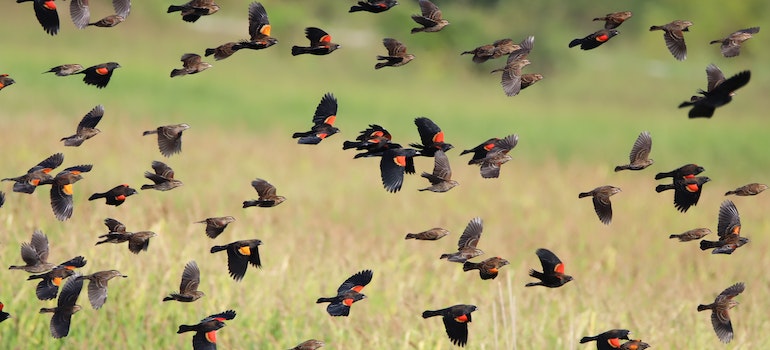
Furthermore, birds can, surprisingly, have an impact on how efficient your solar panels are. Your solar panels may not receive enough sunlight for optimal operation due to the pigeon droppings. Thus, keeping pigeons under your solar panels is essential to preventing damage to your property and guaranteeing that your solar panels are operating as intended. Finally, birds can introduce pests to your property that can seriously harm you and your family as well as your fruits and vegetables.
What smells do birds hate?
You should use olfactory bird deterrents to keep birds off your property. Furthermore, you can prevent birds from congregating in your backyard by making homemade essential oils if you know what scents they find repulsive. Even though their sense of smell is not very strong, it has been demonstrated that some scents irritate and discomfort birds.
For instance, hiring turf cleaning Summerlin NV services is the most efficient option if you’re in Summerlin. Once the professionals have completed their work, you can apply the essential oils to the turf, surrounding plants, porches, or any other area you want to keep free of bird droppings.
Garlic is probably one of the smells that birds detest the most. This is because it has an ingredient called allicin, which aggravates birds greatly. Fortunately, this smell only bothers birdsit does not harm them. Therefore, all you need to do to get rid of the birds is make a homemade spray by mixing garlic powder with water. Apply it to your property’s surroundings or to areas like gutters and roofs where birds congregate and build their nests.
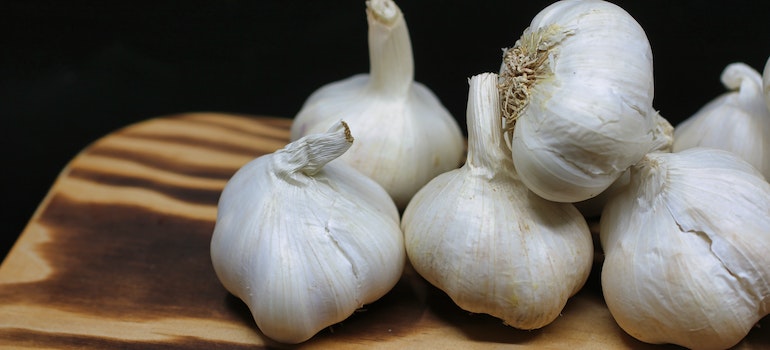
Also, consider spraying it on your fruits in the garden. Birds are usually attracted by the smell of ripping fruits. Nevertheless, a small amount of garlic spray applied to your plants will deter birds and won’t harm them. Just be mindful that you will need to reapply it frequently because the garlic scent fades quickly.
Another smell that birds hate is the smell of peppermint. You can use this scent to deter birds from visiting your area because they find it to be extremely unsettling. The best part is that peppermint oil doesn’t hurt the environment, birds, or your plants. Therefore, apply peppermint oil to the areas where birds nest by mixing it with water. Since they frequently congregate on roofs and build nests there, it would be a good idea to pressure wash the roof in order to remove any bird droppings before applying the peppermint oil. This will guarantee that there are no birds destroying your plants or leaving behind bird droppings in the vicinity of your home.
One very good way to keep the birds away is with vinegar. Its only drawback is that it might damage your plants. For this reason, it works well for your porch and the surrounding area of your home, but not for your garden. The best way to apply it in your garden is to dilute your peppermint or garlic oil with a few drops of vinegar, then mist the surrounding plants. If not, fill the spray bottle with vinegar and use it to mist your porch, garage, and other places that aren’t near your fruits and vegetables. This may be just as successful of a solution as hiring experts for pigeon removal in Summerlin, Nevada. The birds will be taken out of your property, but in a way that protects them and doesn’t hurt them.
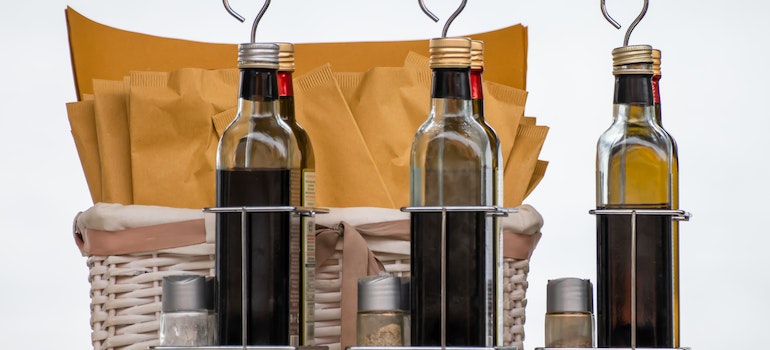
Consider how birds would respond to chili, as some people find it irritating. Birds avoid chili because of the capsicum annuum, which gives it its spicy flavor. There are several varieties of chili, and you can use them all to ward off birds. To keep birds away from an area, simply use some water and add some chili powder, chili salt, or chili pepper to it. Then, sprinkle it around. You can even use vinegar in place of water, but use caution as vinegar can damage your plants, as was already mentioned. However, you can be certain that you won’t harm your plants or your property if you combine it with water.
Unbelievably, another scent that will deter birds is lemon. Because lemon has such a strong scent, birds would quickly take off from the area. The outcome will be the same whether you use freshly squeezed lemon juice or create a spray with water in it. And that is, you wouldn’t have to worry about birds damaging your property ever again. You can be confident that lemons are among the best natural ways to deter birds from visiting your property because they are not poisonous or damaging to them.
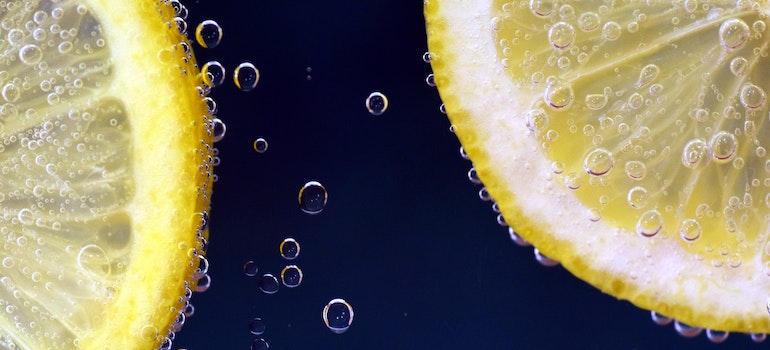
Birds are among the many animals that detest the smell of cayenne pepper. This is a result of the cayenne pepper’s odor irritating the birds’ olfactory glands. Therefore, if pigeons or any other birds are bothering you in your area, chop up some cayenne pepper, mix it with some water, and spray your property. Just use caution as this spray has the potential to irritate your eyes. This will deter birds from landing in your garden, on your roof, and on your solar panels. Additionally, think about having your residential solar panels cleaned before using this technique. After birds have cleaned your solar panels of their cayenne pepper odor, bird deterrents will make sure they never again tamper with your panels.
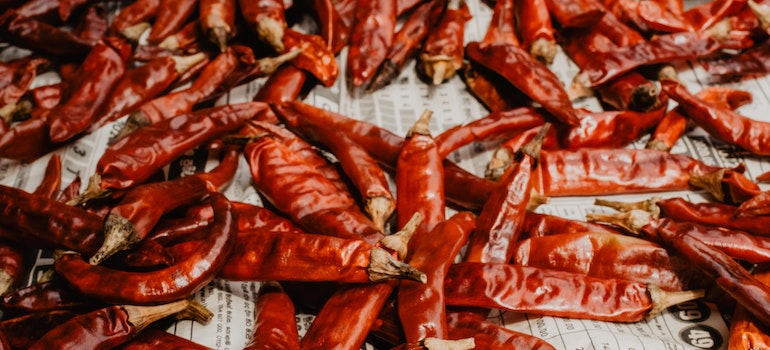
There are a few scents that birds dislike, in case you were wondering. However, one thing is for sure: birds are repulsed by the smell of mothballs or ammonia. The easiest method is to just place a few mothballs in your garage, porch corners, and certain garden spots. Without a doubt, this scent will deter birds. But keep in mind that for this method to work really well, you will need to periodically replace the mothballs because their odor fades quickly.
Citronella is probably the scent that birds detest the most. This is a natural scent found in lemongrass. Even though a lot of people use this scent to freshen up their homes, birds simply don’t like it. Because of its strong scent, you can be sure that birds won’t be drawn in by other garden scents. Citronella will deter them from visiting. You can use a fresh plant or oil. The scent of lemongrass will deter birds from visiting your garden if you choose to use a fresh plant. Alternatively, you can purchase citronella oil and apply it to the areas you wish to keep free of birds. The benefit is that it will deter not just birds but also flying insects and mosquitoes.
Without a doubt, the majority of people enjoy cinnamon. We all have cinnamon powder or sticks in our kitchens. But for the birds is a different story. Birds dislike the smell of cinnamon. Therefore, all you would need to do is scatter a few cinnamon sticks around your home to deter birds from visiting particular spots on your property. Moreover, you can combine cinnamon powder and water. You can use it to spray the nooks and crannies of your garage, porch, and other exterior spaces. An economical and efficient method of keeping birds off your property is to use cinnamon.
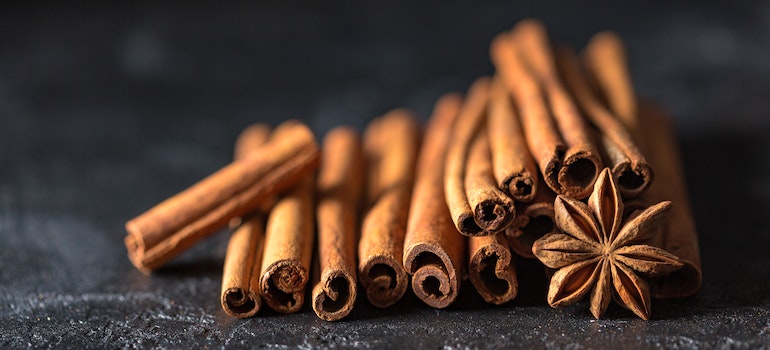
Lastly, the smell that birds absolutely repel is the smell of the bird gel. This product is mostly used by professionals and you can buy it in the stores if you dont want to make your own essential oil. The smell of this product will depend on the type of bird gel but some of them can have a mixture of smells mentioned above.
The benefit of applying bird gel is that it acts as a physical barrier in addition to irritating the birds’ sense of smell. Because the gel sticks tenaciously to birds’ feet, it irritates them and keeps them from roosting in your backyard. Bird gel is the best way to keep birds off your property, just as hiring solar panel cleaning Summerlin NV services is the best way to keep your solar panels efficient.
FAQ
Are mothball fumes toxic to birds?
Will moth balls keep birds away?
Is it safe to put mothballs in the yard?
What kind of animals do mothballs keep away?